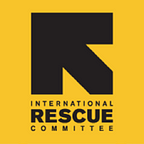The case for structured refugee resettlement in Europe
Structured resettlement is a choice for people and for progress, and a choice that will give Europe more.
The challenge
- More than 65 million people have been forced to flee their homes due to conflict, violence and persecution.
- 21 million people have been forced to flee not just their homes but their countries, and are now living in other countries as refugees.
- 86% of the world’s refugees are in low- and middle-income countries, many of which are also conflict-prone.
- Europe has 16.5% of the world’s GDP and EU member states host only around 8% of the world’s refugees.
The response
- The UN estimates that 1.19 million people, cannot build a life in the countries to which they first fled. They have no chance of returning home, they cannot work, they cannot send their children to school and they cannot get medical treatment. Their only option is to be resettled to a third country.
- In 2014, EU member states resettled just 8,579 of the 1.19 million refugees in need of resettlement.
- The IRC calculates that the EU should resettle at least 108,000 refugees each year over the next five years, at a minimum.
- The EU’s resettlement framework is about to go through the Parliament and Council. It must be ambitious enough to make a real difference for refugees and for Europe.
Now is the time to act — and here’s why:
Because with resettlement as an option, fewer vulnerable refugees will be forced to take dangerous routes to Europe.
Since the beginning of 2015, almost 7,000 people have died attempting to cross the Mediterranean in search of protection. The death toll continues to rise.
If enough resettlement places become available, refugees will be deterred from taking these dangerous journeys and apply for resettlement instead.
Because refugees who are resettled are helped to find work, to start their own businesses and to lay down roots.
Once integrated into the labour market, refugees become net contributors to the economy.
The IMF predicts that the EU’s GDP will be 0.25% higher by 2020 as a result of the refugee arrivals to the EU in 2015, and between 0.5% and 1% higher in Germany and Sweden, where most of the refugees have settled. And Europe needs the labour. The same IMF report finds that over half of Europe’s population will be retired or children under working age by 2050.
Because we can decide which refugees to accept, we can decide when and how they get to Europe, and we can decide how they are supported once they are within our borders.
The UN has criteria to determine who is in need of resettlement. So we know we are taking the most vulnerable: single mothers, people with serious medical conditions, survivors of torture or trauma, and those who have no other solution.
We manage the refugees’ arrival to Europe, so that they are not risking their lives at sea. We cannot and should not stop people coming and claiming asylum. But resettlement offers a safe alternative for refugees. And resettlement is safe and secure for Europe, since resettled refugees are security vetted prior to arrival.
Because by taking refugees from countries neighbouring conflict or strife, we free up resources there.
These neighbouring countries are currently hosting more than their fair share of the world’s refugees.
By taking in more refugees through resettlement, the strain on governments, infrastructure and communities in countries such as Jordan, Pakistan, Lebanon, Iran, Ethiopia and Turkey will be eased.
Because by implementing refugee resettlement at scale Europe would be leading the way in finding structured, humane and long-term solutions to the global refugee crisis.
Right now, as crises grow and become more complex, the number of refugees around the world is only going to increase.
Refugee resettlement is not the only solution and must be complemented with other pathways to protection for refugees. But structured resettlement is a choice for people and for progress, and a choice that will give Europe more.
The International Rescue Committee responds to the world’s worst humanitarian crises, helping to restore health, safety, education, economic wellbeing, and power to people devastated by conflict and disaster. Founded in 1933 at the request of Albert Einstein, the IRC has offices in London, Brussels and Geneva and is at work in over 40 countries including in Greece, Germany and across the Balkans, helping people to survive, reclaim control of their future and strengthen their communities.
